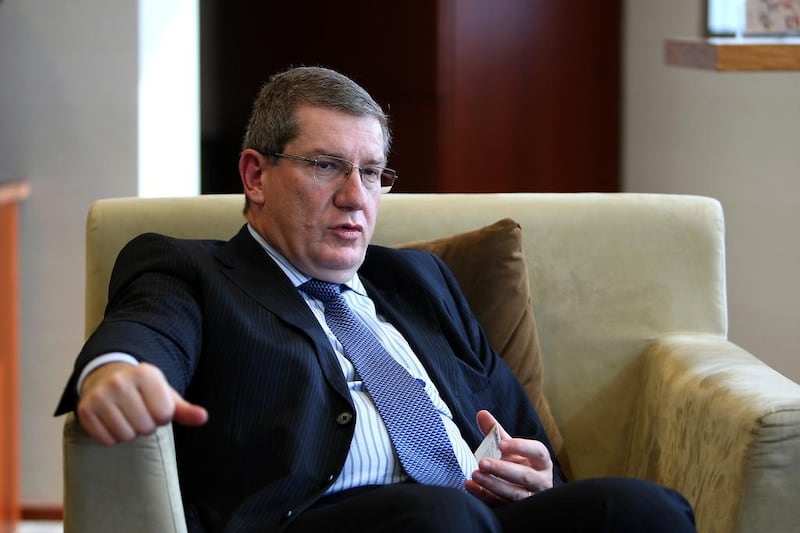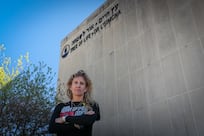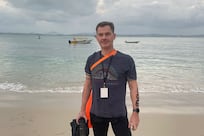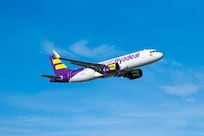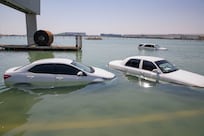Iyad Malas is a regular at Davos. “I like the networking opportunities. There really are few places in the world where so many interesting figures gather at one time, and where you get a global perspective on important matters,” he says on the sidelines of the World Economic Forum (WEF).
He doesn’t say it, but as chief executive of one of the Middle East’s biggest companies, Majid Al Futtaim Holding, responsible for some of the region’s most successful businesses, it is just as likely that fellow Davos delegates will want to get his view on global matters.
Mr Malas comes from the kind of globalised background typical of WEF participants. Born in Lebanon, he was educated in the United States before joining the World Bank, in charge of its International Finance Corporation division in the Middle East and South Asia.
A five-year spell in Egypt as chief operating officer for EFG-Hermes gave him insight and experience into the business and economy of that troubled, but potentially lucrative, country.
He was lured to Dubai to head up the running of the Majid Al Futtaim family trust, before being appointed CEO of the group in 2009.
Majid Al Futtaim (MAF) is one of the family-owned companies that have been behind so much of the modern commercial development of the UAE in retailing, hotels and property. In 1992, it opened the country’s first mall, Deira City Centre, with the first hypermarket.
In 2005, it opened Mall of the Emirates, then the biggest shopping centre in the region, home to the Ski Dubai attraction that has become a symbol of the Emirates’ tourist industry.
A recent rebranding exercise has played to the group’s family origins. “We are a 20-year-old business with a good name and tradition, and we want to tie Majid Al Futtaim, the group, with the sub-brands. It will give the consumers confidence, and will strengthen our entry into new markets,” says Mr Malas.
His ambitions are big. “We have doubled in size every five years over the past 20 years, and we want to double again over the next five,” he says.
International expansion has been behind much of that growth. Malls and hypermarkets, usually in association with the French group Carrefour, have become its speciality in Oman, Qatar, Egypt and Bahrain.
“The overseas markets require big investment. We’re putting US$600 million into one mall in Egypt, as part of a programme of expansion in the country that will eventually take up around $2.3 billion over the next four to five years or so, including the biggest, the Mall of Egypt in Cairo,” he says.
Saudi Arabia is a challenging market. MAF is there in the hypermarket business via Carrefour, but so far has not opened any malls. “We’re looking at a mall strategy in Saudi,” says Mr Malas.
He is also pondering another big destination mall in Abu Dhabi. “We think the capital still has need for a city centre facility like Mall of the Emirates, not just a shopping area but a really nice destination,” he says.
MAF bought out the minority stake in the supermarkets business held by Carrefour, and still has the franchise for the French brand in other countries in Africa and Central Asia, where an expansion strategy will be rolled out in the next couple of years.
But its home is not being neglected. MAF has plans to inject Dh3bn into renovation and development of its Dubai properties, in support of the government’s drive to capture an even larger share of the tourism market.
At Davos, Mr Malas had just listened carefully to the speech in which the Iranian president, Hussain Rouhani, declared Iran to be “open for business”. MAF had supermarkets operations in Tehran that were spun out of the group structure last year ahead of a fund-raising. Mr Malas would not comment on the possibility that they might be brought back into the group business if the relationship between Iran and the rest of the world continues to improve, but says: “At the end of the day, peace should be good for everyone.”
Financially, MAF is in a good position after bond issues last year, including a $1billion sukuk. Revenues for 2013 came to Dh23bn, a 10 per cent increase. With 157 million customers going through its malls, the business generates cash at an impressive rate.
Other family businesses in the UAE are believed to be considering stock market listings, but Mr Malas does not believe there is any need for an initial public offering for the group. “You need an IPO to get liquidity if the owners want to exit the business, or to raise equity to fund growth. Neither of those applies to us,” he says – although he suggests that some subsidiaries might eventually be spun off, but “we’re a long way from that.”
MAF may be a family-owned company, but it is run as a modern, professionally managed organisation. “We are still a first-generation company, but we’ve separated ownership and management,” he says.
fkane@thenational.ae
